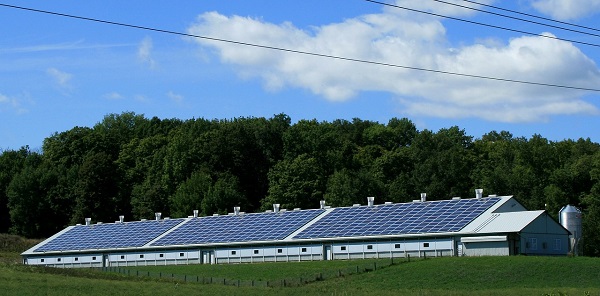A master’s in petroleum engineering is among the highest-paying master’s degrees – but for how long? If you’re following the climate change crisis, as engineers and engineering students should be, you might worry that the move to cleaner energy will slash the career opportunities available in the field of petroleum engineering. These concerns aren’t unfounded, but they shouldn’t hold you back from a career you love, either. Despite the likelihood that jobs in energy resource engineering will change over the next several decades and some recent tough times resulting from the COVID-19 pandemic, there are still likely to be jobs in this industry.
IMAGE SOURCE: Pixabay, public domain
The Career Outlook for Petroleum Engineering
You might expect employment opportunities in petroleum engineering to take a dive due to the increased focus on cleaner energy sources, but the United States Bureau of Labor Statistics (BLS) predicts otherwise. For the 2019 through 2029 period, the BLS expected jobs for this occupation to increase by three percent, or “about as fast as the average” expected across all occupations. All told, the BLS anticipated that the petroleum engineering occupation would encompass 1,100 more jobs by 2029. This growth rate isn’t spectacular, but it still is positive growth expected to occur at an average rate. Careers in petroleum engineering, overall, aren’t on the decline.
The COVID-19 pandemic has been difficult for the oil and gas industry, The New York Times reported in 2021. Those challenges have hindered oil industry careers, including among recent graduates and students preparing to graduate and join the workforce.
Why Prospective Petroleum Engineering Students Should Hold on to Hope
No one can definitively say what will happen with the oil and gas industry in the future, including the more distant future decades away. However, there are several reasons that aspiring petroleum engineers shouldn’t panic. For one thing, as The New York Times noted, employment in the petroleum industry is still larger than that of the wind and solar industries combined, even after factoring in pandemic-related layoffs and job losses.
Given that the move to cleaner energy will be gradual, not instant, agile petroleum engineers who make an effort to diversify their skills and professional connections aren’t likely to be left suddenly and hopelessly jobless. Even the International Renewable Energy Agency noted that “the global energy system must undergo a profound transformation” and set the goal that “by 2050, all countries can substantially increase the proportion of renewable energy in their total energy use” to 60 percent or more of total energy consumption.
Petroleum use is most closely related to the transportation and industrial sectors, which happen to be the ones burning gas and oil products for energy in ways that produce CO2 emissions and contribute to climate change. However, petroleum products also have a place in other areas of the economy. Agriculture, electronics, clothing, furniture, children’s toys and beauty products are some of the goods that currently use petroleum products, Forbes reported.
Since the inclusion of petroleum in these products doesn’t produce the same CO2 emissions that burning gas and oil does, this use of petroleum may not suffer from the move to cleaner energy. Advances in technology – many of them made by petroleum engineers and other types of engineers working in the gas and oil industry – are reducing the effects of extracting oil on the environment.
If you have concerns about the continued viability of petroleum engineering careers, you could always major in a broader engineering discipline related to petroleum engineering, such as mechanical, civil or environmental engineering.
Changes in the Petroleum Engineering Industry and Curriculum
Another point to note is that neither the field of petroleum engineering nor degree programs in this area are stagnant. Engineers are constantly innovating, which means that engineering careers and degree programs have to keep evolving to stay current. For the field of petroleum engineering, keeping up with these changes is particularly important as the focus on cleaner energy sources grows.
For example, some highly respected engineering schools have shifted their program’s focus and name from petroleum engineering to the broader and more modern area of energy resources engineering or made similar changes. The field of energy resources engineering still covers the methods of designing and developing solutions, systems, infrastructure, processes and machines for the oil and gas industry, which continues to remain a major player in current energy production. However, these programs tend to include more of a focus on sustainability, including how to extract these natural resources in ways that are more environmentally conscious. The emphasis of energy resources engineering isn’t exclusively on petroleum products and encompasses studies in the use of renewable energy sources, such as solar power, wind power, hydropower and geothermal power.
Even among petroleum engineering programs that haven’t changed their names, topics like clean and sustainable energy have become subjects of academic research. Innovation in petroleum and energy engineering has also become more important in industry research efforts, as well. The potential benefits of transitioning to well-engineered and cost-effective methods of generating renewable energy are significant and widespread.
Not only can a switch to renewable energy address the serious problem of climate change, but it avoids the issue of non-renewable natural resources running out.
Related Resources:
What Does It Mean to Be a Petroleum Engineer?
What Job Opportunities Are Available After Graduation for Petroleum Engineering?
What Undergrad Degrees Are Best to Get If I Plan to Get an Advanced Degree in Petroleum Engineering?
What Are the 5 Best Careers in Environmental Science?
For Further Reading:

